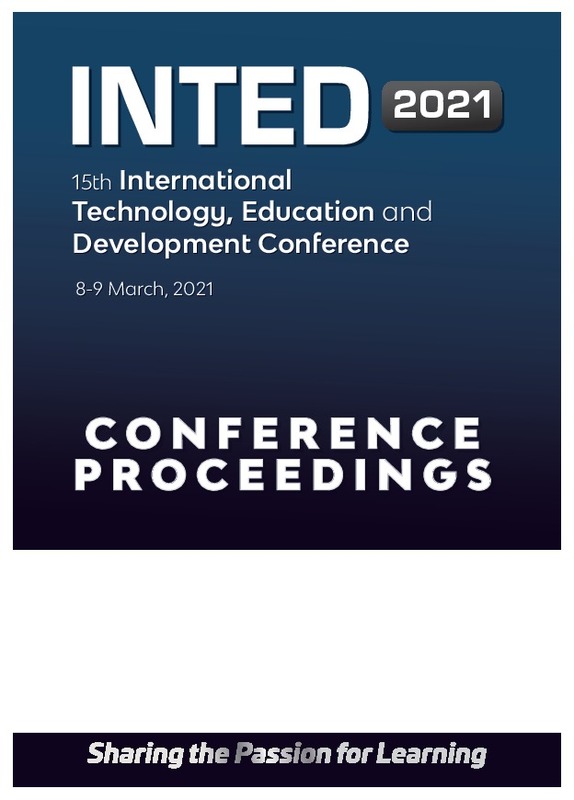JavaScript is disabled for your browser. Some features of this site may not work without it.
Buscar en RiuNet
Listar
Mi cuenta
Estadísticas
Ayuda RiuNet
Admin. UPV
Student approach to learning in a degree level subject: evolution over the term
Mostrar el registro sencillo del ítem
Ficheros en el ítem
| dc.contributor.author | Leiva-Brondo, Miguel
|
es_ES |
| dc.contributor.author | Cebolla Cornejo, Jaime
|
es_ES |
| dc.contributor.author | Peiró Barber, Rosa Mª
|
es_ES |
| dc.contributor.author | Pérez De Castro, Ana María
|
es_ES |
| dc.date.accessioned | 2021-11-24T07:50:06Z | |
| dc.date.available | 2021-11-24T07:50:06Z | |
| dc.date.issued | 2021-03-09 | es_ES |
| dc.identifier.isbn | 978-84-09-27666-0 | es_ES |
| dc.identifier.issn | 2340-1079 | es_ES |
| dc.identifier.uri | http://hdl.handle.net/10251/177482 | |
| dc.description.abstract | [EN] Student approach to learning can vary between students depending on different factors. Those factors can be classified as contextual, perceived or student factors. Contextual factors are the type of studies, the subject, the classroom activities or the assessment system among others. Some of those factors are in the teacher domain and can be modified to influence student approach to learning. In the present study, the R-SPQ-2F questionnaire was completed by freshmen students of Biotechnology degree at the beginning and the end of a General Genetics subject. The students showed a higher deep approach than surface approach and differences were observed depending on year, gender and language used as medium of instruction. Pre- and post-test comparison showed no variation in deep approach while a slight increase in surface approach. The item reliability of the questionnaire was high, and correlations were found between the main scales and secondary subscales. The methodology, classroom activities and assessment system used in the subject seem to maintain the initial interest of the students in the subject but more studies should be made to get more involvement of the students in their own learning and improve their results. | es_ES |
| dc.description.sponsorship | The publication of this work has been funded by a project of Educational Improvement and Innovation awarded by the Vice Dean for Studies, Quality and Accreditation of the Universitat Politècnica de València (Spain). | es_ES |
| dc.language | Inglés | es_ES |
| dc.publisher | IATED | es_ES |
| dc.relation.ispartof | INTED2021 Proceedings | es_ES |
| dc.rights | Reserva de todos los derechos | es_ES |
| dc.subject | R-SPQ-2F questionnaire | es_ES |
| dc.subject | Deep and surface approach | es_ES |
| dc.subject | Assessment | es_ES |
| dc.subject | Teaching methodologies | es_ES |
| dc.subject.classification | GENETICA | es_ES |
| dc.title | Student approach to learning in a degree level subject: evolution over the term | es_ES |
| dc.type | Comunicación en congreso | es_ES |
| dc.type | Artículo | es_ES |
| dc.type | Capítulo de libro | es_ES |
| dc.identifier.doi | 10.21125/inted.2021.0707 | es_ES |
| dc.rights.accessRights | Abierto | es_ES |
| dc.contributor.affiliation | Universitat Politècnica de València. Departamento de Biotecnología - Departament de Biotecnologia | es_ES |
| dc.description.bibliographicCitation | Leiva-Brondo, M.; Cebolla Cornejo, J.; Peiró Barber, RM.; Pérez De Castro, AM. (2021). Student approach to learning in a degree level subject: evolution over the term. IATED. 3386-3393. https://doi.org/10.21125/inted.2021.0707 | es_ES |
| dc.description.accrualMethod | S | es_ES |
| dc.relation.conferencename | 15th International Technology, Education and Development Conference (INTED 2021) | es_ES |
| dc.relation.conferencedate | Marzo 08-09,2021 | es_ES |
| dc.relation.conferenceplace | Online | es_ES |
| dc.relation.publisherversion | https://doi.org/10.21125/inted.2021.0707 | es_ES |
| dc.description.upvformatpinicio | 3386 | es_ES |
| dc.description.upvformatpfin | 3393 | es_ES |
| dc.type.version | info:eu-repo/semantics/publishedVersion | es_ES |
| dc.relation.pasarela | S\430684 | es_ES |
| dc.contributor.funder | Universitat Politècnica de València | es_ES |
| dc.subject.ods | 04.- Garantizar una educación de calidad inclusiva y equitativa, y promover las oportunidades de aprendizaje permanente para todos | es_ES |








